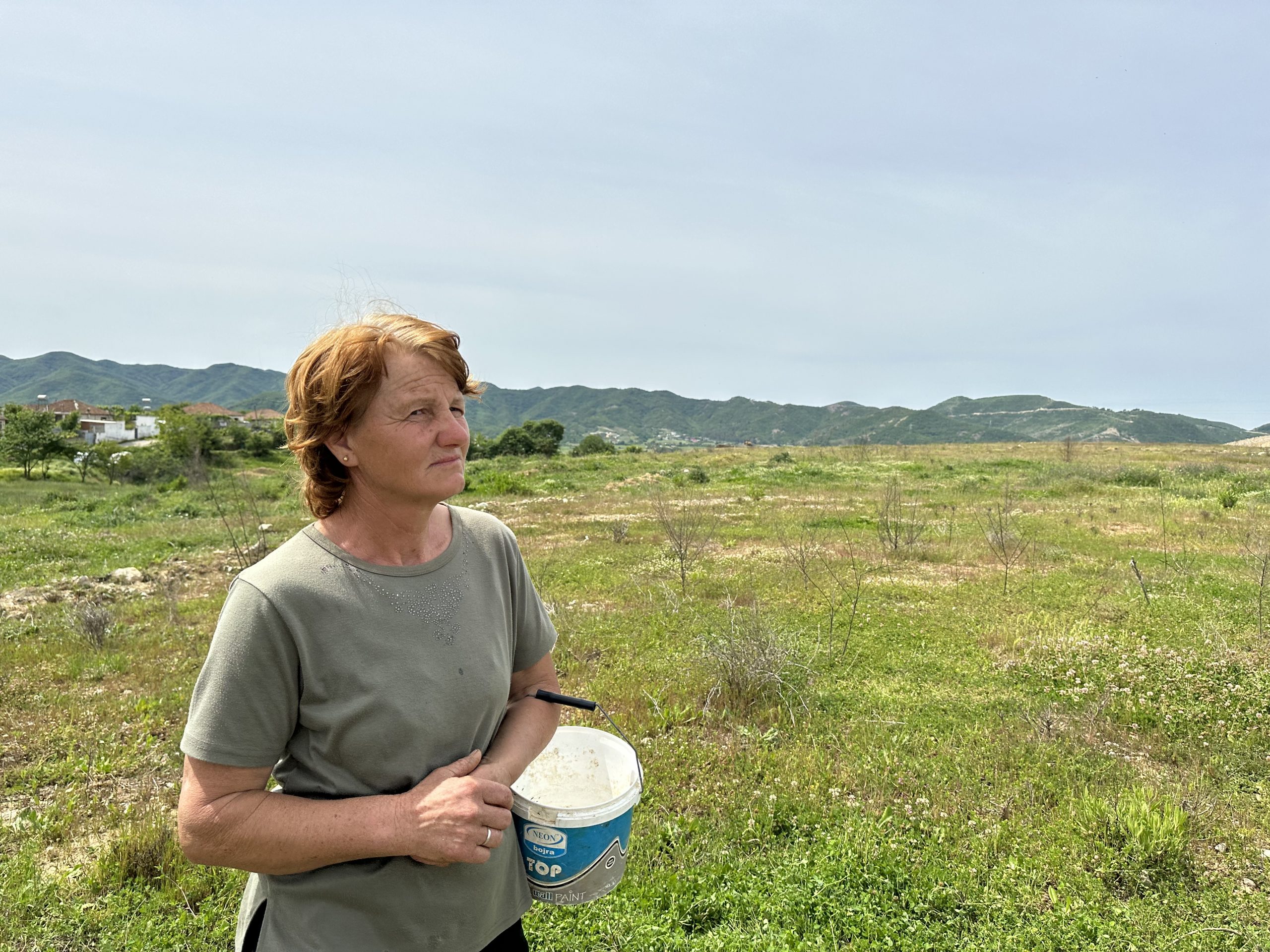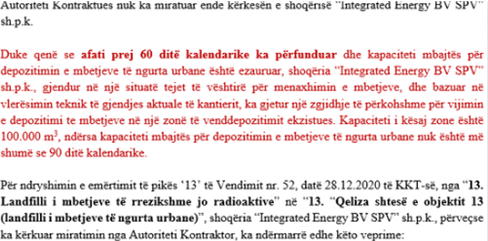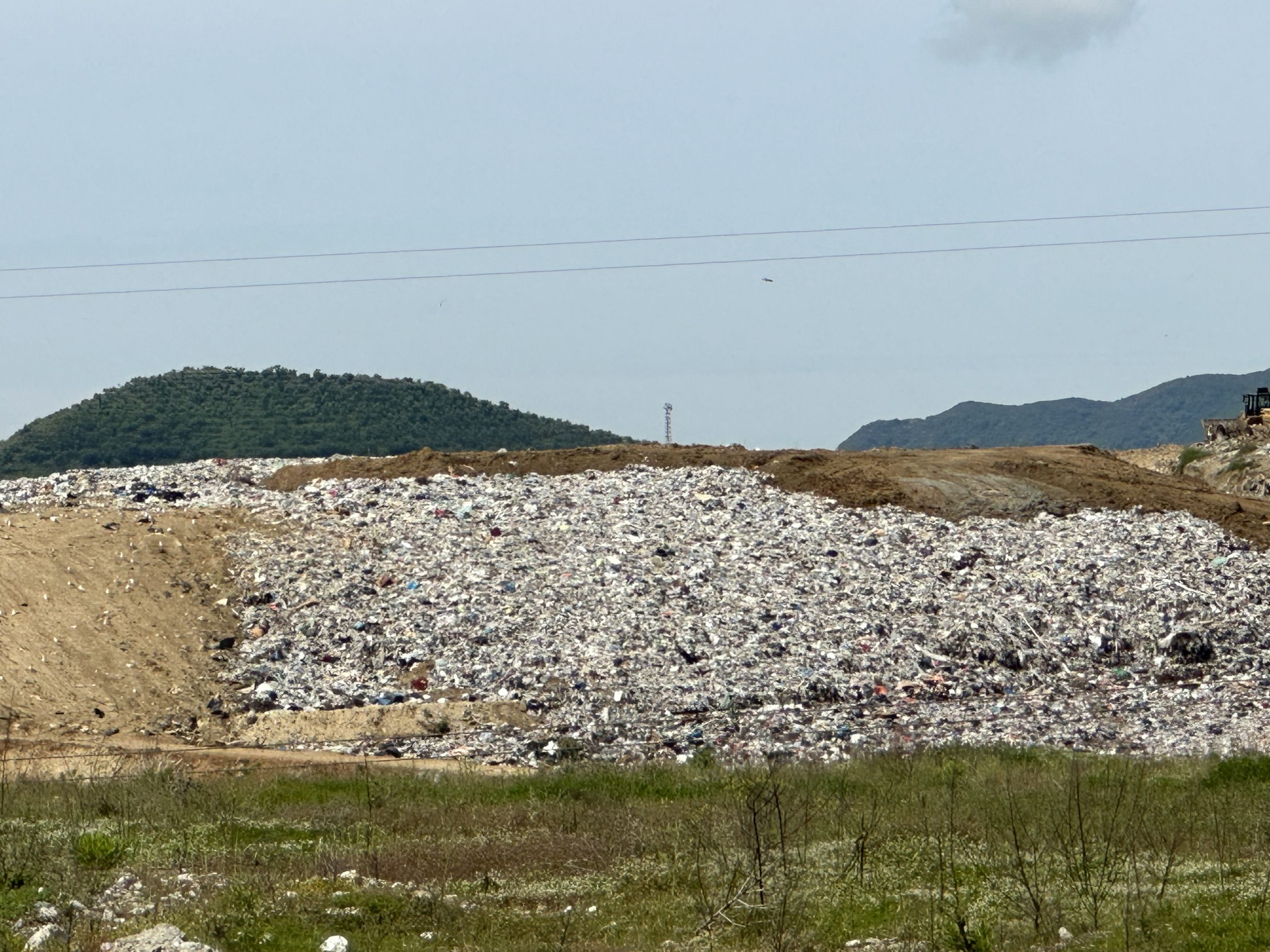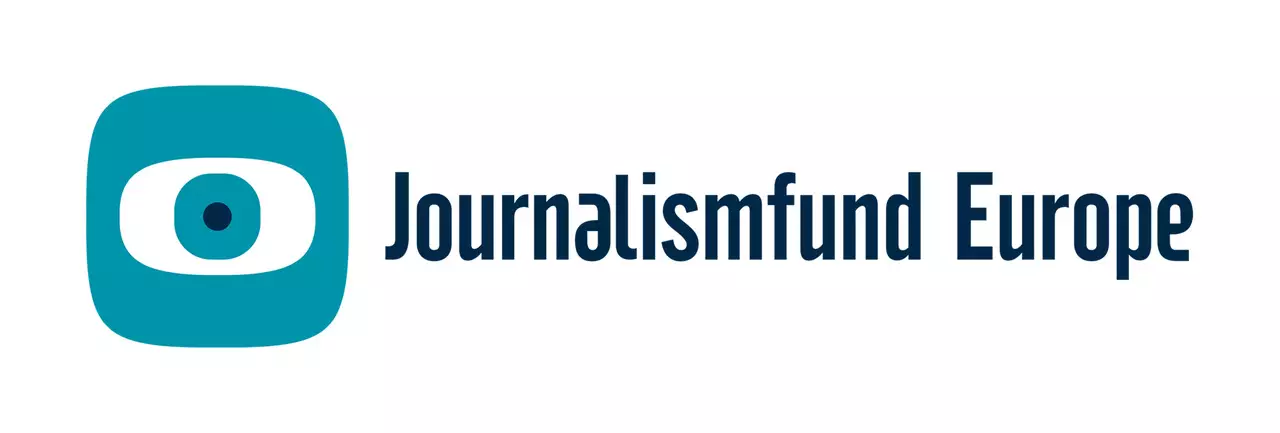Esmeralda Topi
On the morning of May 7th, Xhuli Lamuça was herding cows in the pasture near the landfill of Tirana, in the village of Sharra. To enter the land that once belonged to them, Xhuli and other villagers must pass through the gap that the concessionaire’s fence has opened with metal mesh.

For more than a month, the difficult coexistence of the residents of Sharra with unpleasant odors and pollution has been compounded by the lack of water.
“The construction of the incinerator closed our water sources, but we were promised that they would bring us water every day by tanker,” recalls Xhuli, stating that for more than a month they have had to buy water themselves.”
“I pay 15 thousand old lekë every day for the water I buy; I have to because I have cows and the stable needs cleaning. I sell milk to buy water,” Xhuli says, worried. After losing their lands due to expropriations for the construction of Tirana’s waste treatment project, some residents have been employed by the concessionaire.
“Not everyone complains because some work with the waste and are worried they will lose their jobs. But even those of us who complain don’t get a solution…”, Xhuli admits sadly.
Overflowing Landfill
Tirana’s landfill has a total capacity of 420,000 cubic meters of waste. The contract stipulated that the landfill would cope with demand until the construction of the incinerator, which would then incinerate the waste to produce electricity. But the incinerator was never built. For this reason, last year the waste treatment area was operating at the limits of waste management capacity.
Under these conditions, Integrated Energy Company (managed by the Agency of Seized Assets) urgently requested authorities for permission to build an additional cell for the disposal of solid urban waste.

However, the new cell has not yet been granted approval by the responsible authorities. This means that Sharra is currently beyond waste management capacity. Arjan Baçi, appointed by the state to lead the waste treatment company in Tirana, says they are still waiting for the requested permit to be cleared.
“We are managing the situation,” Baçi replied, without giving details. According to him, for more information, an official request was needed, but since March, efforts to obtain information through the coordinator for the right to information have failed.
Garbage Piles in Sharra
Scenes from Sharra confirm the emergency. Municipal waste piles up in the landfill. Pollution is far from the homes of the authorities who promised to eliminate waste but remains the same for the village residents.

“We are surrounded by mountains of garbage; how can we not have a problem?! In summer, and when it rains, the garbage spreads all over Sharra…”, complains Xhuli Lamuça, a resident of Sharra.
However, unlike Elbasan, in Tirana’s landfill, a good portion of the waste is covered with soil, but the problem remains the same, according to experts. For this reason, they warn that we are in an environmental emergency.
“These are not landfill conditions because they are simply gathered there to be burned. But they don’t burn, and they create an ecological bomb that sits there waiting. Entire mountains of waste will be formed.”, says Olsi Nika from ECO Albania.
Despite this situation, the incinerator, which was supposed to burn the waste, has been “burning” public funds for years.
Just this year, Tirana’s non-existent incinerator (for which investigations by SPAK are ongoing) will receive 12 million euros from the state budget. Likewise, budgetary support will continue for years.
“The money is taken as if the incinerator were working intensively. So, taxpayers suffer not only from environmental pollution but also from a theft as significant as pollution,” says environmental expert Ahmet Mehmeti.
According to official data from the Ministry of Finance, for seven years, for all three facilities (incinerators in Elbasan, Tirana, and Fier), the state budget has provided approximately 122 million euros. Millions more are expected to be allocated over the years.
Instead of the Incinerator…
In these circumstances, Olsi Nika says the government will have to admit the failure of incinerators by offering new solutions.
“They will budget again for their destruction. Because waste management starts from your house and mine, and this chain has never been taken seriously in Albania. Pilot programs, shows, strategies have been made, but there is no will because waste comes first.”, he argues.
Meanwhile, Mihallaq Qirjo, a professor at the Faculty of Natural Sciences, sees recycling as a solution.
“We still see solutions in landfills and incinerators, while we should look at reuse of materials that have gone through one use cycle. So here I judge that we still have room to see the country’s development on a greener path.” – Mihallaq Qirjo, professor at the Faculty of Natural Sciences.
Even the European Commission, in its latest report on Albania, addressed the need to promote a circular economy, incentivizing waste prevention, reduction, and landfill reduction.
However, the only concrete step towards a circular economy in Albania this year happened – without providing a solution to incinerators. In March, the government created the National Waste Agency, a structure under the Ministry of Tourism and Environment.
“NAW will technically support the ministry’s policies responsible for the environment in the field of integrated waste management, aiming for a transition to a circular economy (the main concept of which is waste minimization through reduction, reuse, recycling),” the Ministry of Environment wrote in a written response.
The agency will have 26 employees, but its approval is still in process. However, environmental experts do not see waste management solutions through an Agency.
Background
The concession for waste treatment in Tirana was signed on August 31, 2017, by the Ministry of Environment and the company registered in the Netherlands – “Integrated Energy” B.V. The concession contract envisaged the rehabilitation of waste disposal sites in Sharra, as well as the construction of a landfill and an incinerator to produce electricity.
“Look at how the battle for a clean European Albania is being won, right in the heart of our country, through a new model of European Union standards for waste collection, processing, and energy production with zero negative impact on air and health,” boasted Prime Minister Edi Rama when presenting the 3D video of the Sharra project, almost a year after signing the contract.
According to the Prime Minister, through this model, the government would eradicate the curse of waste throughout the country – not just in Tirana, Elbasan, and Fier.
“Do not listen to the noise of political and media crows where a thousand and one black ones cry out against these projects so beneficial for the environment and health…”, Rama insisted in May 2018.
But time proved otherwise. The Elbasan incinerator does not work, the one in Fier did not finish, while in Tirana, the incinerator does not exist. Currently, the incinerators are under seizure by the Special Prosecution Office against Corruption and Organized Crime. This, since the investigations by SPAK have concluded that the contracts are corrupt affairs with dozens arrested, including high-ranking public officials.
This article was written by the journalist Esmeralda Topi, with the support of Journalismfund Europe.






